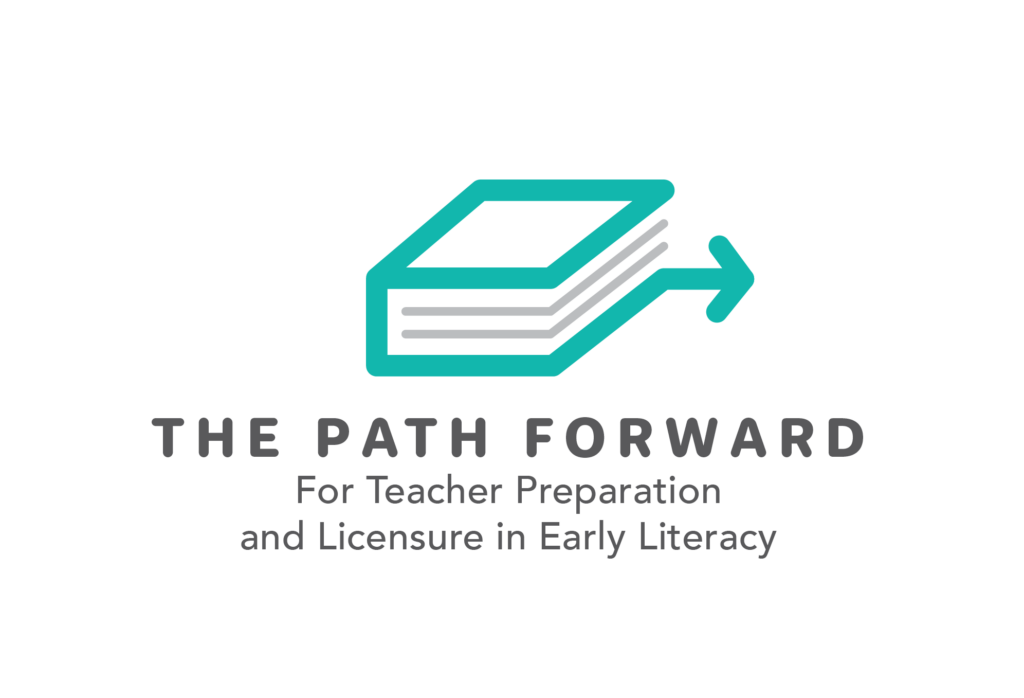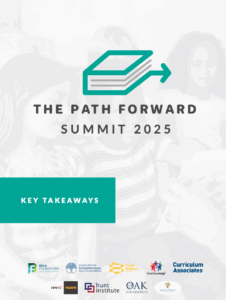Over the course of a year, state teams come together to set goals and share best practices regarding ways to ensure that teacher preparation, licensure, and program approval are aligned to the science of reading.
Each state is supported in these efforts through intensive coaching, participation in virtual convenings, and attendance at an in-person convening. At the end of the program, teams will have a customized action plan for further embedding the science of reading into their state’s plans.
State teams are made up of individuals from the state working to improve literacy for its students. It is critical that each team prioritize members who have a deep understanding of the science of reading, understand policy levers to bring change in teacher preparation, licensure, and program approval, and are strong voices in the state’s teacher preparation programs.
View the Latest Issue Brief and Key Takeaways:
Early literacy proficiency is critical to later success, both in academics and in life. However, despite efforts to improve early literacy instruction across the country, the United States struggles to effectively teach children to read, showing no progress on international exams in reading since 2000. According to data from the National Assessment of Educational Progress (NAEP), average fourth grade reading scores increased in only one state between 2017 and 2019, while scores decreased in 17 states and showed no significant change in all other states. Additionally, when examining the impacts of the COVID-19 pandemic on learning, the widely used Measure of Academic Progress (MAP) reveals a three to six percentile drop in student reading scores between the 2019-2020 and 2020-2021 school years.
In addition to declining scores generally, achievement gaps between white students and students of color are also widening. Scores from the 2019 NAEP fourth grade reading assessment show a 26 point difference in reading proficiency between white and Black students and between white and American Indian students, and a 21 point difference between white and Hispanic students.
In 2020, The Hunt Institute partnered with The Barksdale Reading Institute and The Belk Foundation to improve early reading outcomes across the nation. The initiative, The Path Forward for Teacher Preparation and Licensure in Early Literacy, empowers states to embed the science of reading in teacher preparation, teacher licensure, and educator preparation program approval.
In its first year, The Path Forward set out to change the current state of reading by working with six states— Arizona, Colorado, Massachusetts, Missouri, North Carolina, and Ohio—to achieve four goals:
-
Transform the curriculum and delivery of early literacy instruction by embedding the science of reading into teacher preparation;
-
Increase educator preparation program (EPP) accountability for early literacy outcomes through changes in state regulations and/or legislative policies;
-
Knit together a coalition of states to bring national attention to solutions that improve literacy instruction; and
-
Encourage the involvement of philanthropy as a neutral broker to affect change at the state level.






